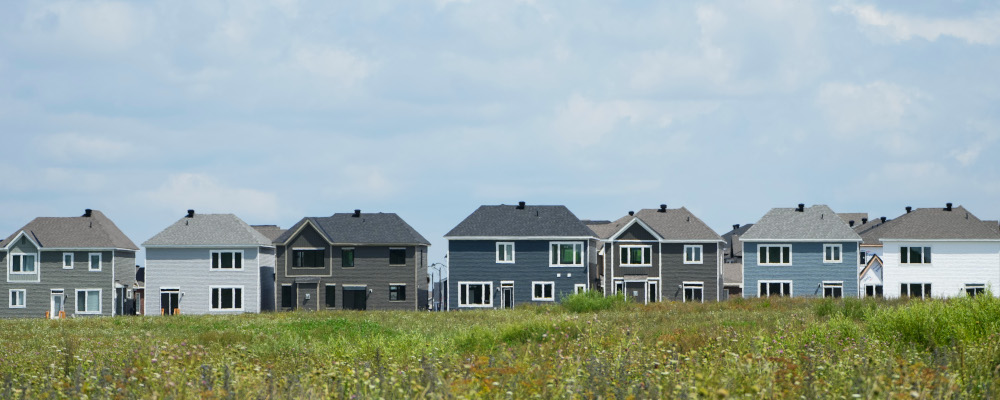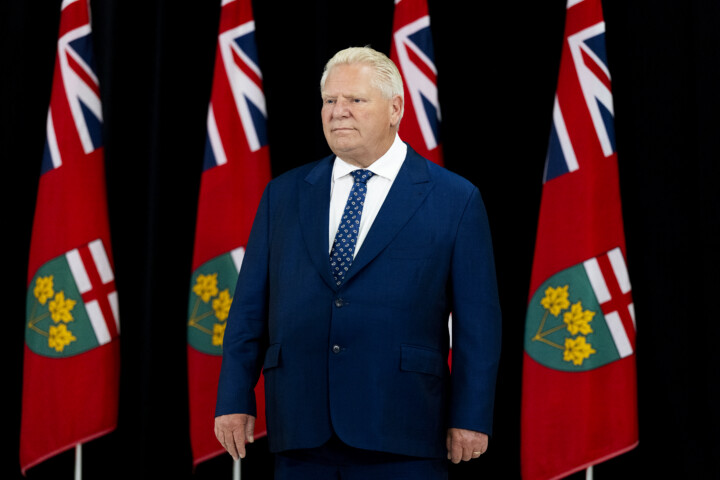Canada’s housing shortage is at the centre of its housing crisis.
With the lowest number of housing units per 1,000 residents of any G7 country, a ratio that has only gotten exceedingly worse since the uptick of immigration in recent years, Canada faces the highest prices for housing in the G7.
Canada’s housing crisis has been heavily covered and analyzed, from how it is fuelling homelessness, pushing families out of big urban centres, and leading to more and more people living at home with their parents.
However, these viewpoints have only focused on how it affects people’s housing. In reality, the housing shortage affects everything. That is, according to a trio of analysts writing in the journal Works in Progress, housing shortages also impact many of the most pressing problems in the Western world, among them declining fertility, endemic chronic illness, brutal inequality, climate catastrophe, sluggish productivity, and slow growth.
They have dubbed these phenomena “The Housing Theory of Everything” and with the most acute shortage of any Western country, Canada is victim to many of its ills in particular.
For example, as Trevor Tombe recently noted, even though Canada’s economic productivity has trailed the U.S. for decades, is that the gap is getting wider. While high housing costs do not initially seem like a factor in this trend, it does play an understated part.
Because many of the high-productivity cities in Canada also have some of the highest costs for rent, many workers are priced out of areas where high-wage jobs are concentrated. This makes it more difficult for workers with the right skills to get jobs in appropriate vacancies and limits their ability to accrue social capital that could give them even better job opportunities.
One study estimates that in the Sydney metro area, the outward displacement of younger households—who, similarly to many Canadians, move further away from a large city—to more remote, lower-cost land and housing led to significant productivity losses for the Sydney and New South Wales economies.
Moreover, housing costs impact how many businesses allocate their resources and investments. As prices continue to rise, housing costs will absorb more and more capital and crowd out non-residential investment. Because housing investment can be a sector with high returns and few technology spillovers, many non-real estate companies will divert investment flows to housing from other, more productive activities such as business start-ups or expansion.
Productivity may seem like an abstract economic idea for how workers and businesses can earn more, but the housing shortage also has a strong impact on inequality. While many of the political debates about inequality typically are about people with higher and lower level incomes, what is less publicized is the inequality between renters and homeowners.
According to a report from TD from last year, wealth inequality has been in decline over the last few years, due to, in part, rising home prices that have helped many Canadians see their most valued asset appreciate. However, the rising costs have exacerbated the gap between households that own a home and households that rent. For example, the average net worth of homeowners born between 1955 and 1964 is now 6.3 times higher than that of non-homeowners born during the same time.
With home prices rising significantly over the past decade, the rate of homeownership has fallen as many that do not have a high income and/or do not have financial help from their parents struggle to come up with a down payment. As the authors of the report put it, “[i]t’s too simplistic to define Canada’s wealth inequality as one of rich versus poor. Over time, it has proven to be one of homeowner versus non-homeowner.”

Most notably, the housing shortage has a critical impact on climate change. Despite the federal government making waves by introducing and expanding policies to reduce carbon emissions, they have overlooked the impact that housing policy can play to aid in the fight.
Dense housing development can often lead to lower per capita carbon consumption as it gives way to transit-rich and more walkable communities. Academics have found that low-density developments produced nearly four times the greenhouse gas emissions of high-density alternatives. Additionally, doubling urban density can reduce carbon pollution from household travel by nearly half and residential energy use by more than a third. This is why many in the YIMBY community were upset with Doug Ford’s decision to open up the Greenbelt for development, despite the justification that it would help address Ontario’s housing shortage.
The takeaway from all this is that all levels of government need to take the housing shortage more seriously. Even if they think some action to expand the housing supply is too ambitious, due to the multifaceted ways the dearth of housing creates problems, in actuality, it probably wouldn’t be ambitious enough.
Recommended for You

Doug Ford says he’s opposed to harm reduction—so why is Ontario handing out millions of free crack pipes?

‘Triple-digit pricing is entirely possible’: How will the Iran war affect global energy prices?

Critical thinking is critical for society—so why have we abandoned it?

Have Alberta’s finances gone off the rails?



